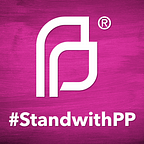I Traveled 1400 Miles for an Abortion.
“Louisiana’s unethical abortion restrictions forced doctors to deny me an abortion out of fear of persecution and losing their license. I was being forced to carry a fetus without a future.”
By: Nancy Davis
On what should have been the 50th anniversary of the passage of Roe v. Wade, I am reminded of what was stolen from me last June — the power to make my own personal decisions about my body, my family, and my future.
I remember getting the positive pregnancy test like it was yesterday. My fiancé and I danced down the hallway full of emotions as our kids jumped with joy. Shortly after receiving the good news, I was elated to be able to get an early ultrasound. My joy was soon ripped away. It was at that first ultrasound appointment that my fiancé and I first learned about acrania, a rare but fatal condition in which the fetus is missing the top of its skull. We were heartbroken to learn that my pregnancy was not viable. As a mother, I know it is my responsibility to do what’s best for me and my family. In this case, the best option was to get an abortion.
The situation soon got even more difficult — much more difficult. The consequences of the U.S. Supreme Court’s decision to overturn Roe v. Wade began to fester in abortion-hostile states, like my home state of Louisiana. Lawmakers — some of whom don’t even understand how pregnancy works — were suddenly given authority over reproductive health decisions. Louisiana’s unethical abortion restrictions forced doctors to deny me an abortion out of fear of persecution and losing their license. I was being forced to carry a fetus without a future.
Every day that passed pushed me further into pregnancy and deepened my pain. I was determined to reclaim my power. I knew I had to quickly navigate to another state to access abortion care. After exploring a few options, I called Planned Parenthood of Greater New York. They were informative, and they ensured we had the financial support we needed through Brigid Alliance, an abortion fund. They took the stress off by booking room and board, flight tickets, meal stipends, and even child care. The empathy and support we received gave us hope. It’s shocking to think that even in this extremely traumatic situation, I am in some ways lucky. Still, no one should be forced to travel hundreds or thousands of miles out of state for essential health care — or worse — forced to carry a state-sanctioned pregnancy against their will.
Today one in three women of reproductive age in the U.S. — and more trans and nonbinary people — no longer have access to abortion in their state. I am one of those women — one of the many people who have experienced trauma over the last seven months as a result of the end of the constitutional right to safe, legal abortion. The court’s decision continues to most harm Black, Latino, Indigenous, and other people of color — communities for whom systemic racism has long blocked access to opportunities and health care.
This has changed my life, and I am committed to fighting to ensure other people don’t have to go through what I went through. I want to reimagine what is possible for our communities, centering those historically left behind. Our right to abortion was stolen from us. But a better, more equitable, future is ours — and I know we can build it together.
Nancy Davis lives in Baton Rouge, LA, and is the founder of the Nancy Davis Foundation, an organization that helps individuals who have experienced trauma as a result of a developmental defect during pregnancy.
Learn More | Support | Take Action
